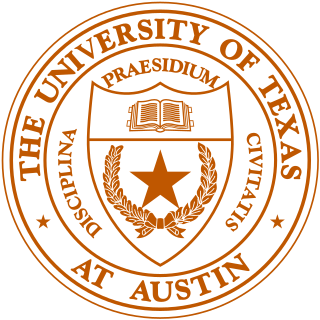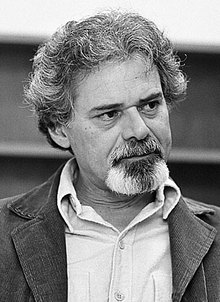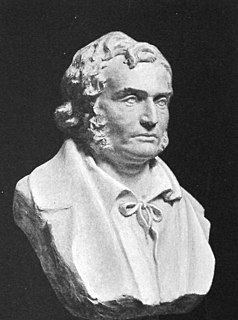
Poul Martin Møller was a Danish academic, writer, and poet. During his lifetime, he gained renown in Denmark for his poetry. After his death, his posthumously published fiction and philosophical writings were well received. He also devoted several decades of study to classical languages and literature. While serving as a professor at the University of Copenhagen, he was a mentor to the philosopher Søren Kierkegaard.

Christian philosophy is a development in philosophy that is characterised by coming from a Christian tradition.
John D. Caputo is an American philosopher who is the Thomas J. Watson Professor of Religion Emeritus at Syracuse University and the David R. Cook Professor of Philosophy Emeritus at Villanova University. Caputo is a major figure associated with Postmodern Christianity, Continental Philosophy of Religion, as well as the founder of the theological movement known as weak theology. Much of Caputo's work focuses on hermeneutics, phenomenology, deconstruction and theology.
René Wellek was a Czech-American comparative literary critic. Like Erich Auerbach, Wellek was an eminent product of the Central European philological tradition and was known as a vastly erudite and "fair-minded critic of critics."

Robert C. Solomon was an American professor of philosophy at the University of Texas at Austin, where he taught for more than 30 years. Professor Solomon won many teaching honors, including the Standard Oil Outstanding Teaching Award in 1973; the University of Texas President's Associates Teaching Award (twice); a Fulbright Lecture Award; University Research and National Endowment for the Humanities Grants; and the Chad Oliver Plan II Teaching Award in 1998.
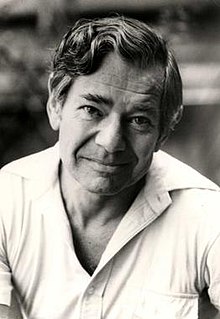
Walter Arnold Kaufmann was a German-American philosopher, translator, and poet. A prolific author, he wrote extensively on a broad range of subjects, such as authenticity and death, moral philosophy and existentialism, theism and atheism, Christianity and Judaism, as well as philosophy and literature. He served more than 30 years as a professor at Princeton University.
John Edmund Hare is a British classicist, philosopher, ethicist, and currently Noah Porter Professor of Philosophical Theology at Yale University.
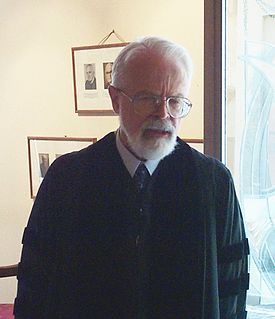
Robert Merrihew Adams is an American analytic philosopher of metaphysics, religion, and morality.
David Bentley Hart is an American polymath whose work encompasses a wide range of subjects and genres. A prolific essayist, he has written on topics as diverse as art, literature, religion, philosophy, film, baseball, and politics. He is also a writer of fiction.
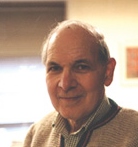
Diogenes Allen was an American philosopher and theologian who served as the Stuart Professor of Philosophy at Princeton Theological Seminary. He was an ordained minister in the Presbyterian Church, which he served from 1958. He died on January 13, 2013 in Newtown, Bucks County, Pennsylvania.
Louis Karel Dupré is a Catholic phenomenologist and religious philosopher. He was the T. Lawrason Riggs Professor in Yale University's religious studies department from 1973 to 1998, after which he became Professor Emeritus. His work generally attempts to tie the modern age more closely to medieval and classical thought, finding precursors to Enlightenment and Reformation events that were naively viewed as revolutions. Dupré is a member of the American Academy of Arts and Sciences.
William Compaine Calin was a senior scholar of Medieval French literature and French Poetry at the University of Florida. His work has focused on Occitan Studies and on Franco-British literary relations.
Jon B. Stewart is an American philosopher and historian of philosophy. He specializes in 19th century Continental philosophy with an emphasis on the thought of Kierkegaard and Hegel. Stewart currently works as a researcher at the Institute of Philosophy at the Slovak Academy of Sciences.
Ramón Saldívar is a Mexican-American author, teacher and researcher of cultural studies and Chicano literature. He is currently a professor at Stanford University, and received the National Humanities Medal from President Barack Obama in 2012.
Edward F. Mooney is a noted Kierkegaard scholar and was Professor of Religion and Philosophy through 2013 at Syracuse University. He received his B.A. in philosophy from Oberlin College (1962) and his M.A. and Ph.D. from University of California, Santa Barbara (1968). His dissertation, written under Herbert Fingarette, linked studies of philosophical themes in literature [ Dostoevsky, The Book of Job] with the turn toward persons in the work of Austin, P. F. Strawson and Iris Murdoch. Mooney was a Professor of Philosophy at Sonoma State University from 1975 until 2002. While there he published books on Kierkegaard and several smaller studies. He then migrated to Syracuse University where his writing expanded to include studies of American Philosophy. He was President of the North American Kierkegaard Society for several years, in which capacity he lectured in Vilnia, Frankfurt, Reykjavik, Jerusalem, Ber-Shiva, Tel Aviv, Dartmouth, Johns Hopkins, Auburn, and elsewhere. He became Professor Emeritus at Syracuse in 2013 and during 2013-2015 was a visiting professor at Tel-Aviv and at Hebrew University, Jerusalem, teaching seminars in American Studies on Thoreau. Mooney presently resides and teaches in Portland, Maine. He was a regular contributor to the interdisciplinary on-line journal Zeteo. His writing exemplifies the intersections among philosophy, religion, and poetry. One finds the clarity of Anglophone ordinary language philosophy joined to issues native to existential philosophy and religion. In recent years he has turned to Melville as exemplifying an informal and episodic conversationally developed philosophy well-suited to literary exposition and wisdom, embodying what Cavell calls "passionate speech." His work has appeared in Japanese, Portuguese, French, Hebrew, and Spanish translation.
Alastair J. Minnis, a Northern Irish literary critic and historian of ideas, has written extensively about medieval literature, and contributed substantially to the study of late-medieval theology and philosophy. Having gained a first-class B.A. degree at the Queen's University of Belfast, he matriculated at Keble College, Oxford, as a visiting graduate student, where he completed work on his Belfast Ph.d, having been mentored by M.B. Parkes and Beryl Smalley. Following appointments at the Queen's University of Belfast and Bristol University, he was appointed Professor of Medieval Literature at the University of York; also Director of the Centre for Medieval Studies and later Head of English & Related Literature. From 2003 –2006 he was a Humanities Distinguished Professor at Ohio State University, Columbus, from where he moved to Yale University. In 2008 he was named Douglas Tracy Smith Professor of English at Yale. He retired in 2018. Professor Minnis is a Fellow of the English Association, UK (2000), a Fellow of the Medieval Academy of America (2001), and an Honorary Member of the Royal Irish Academy (2016). From 2012-14 he served as President of the New Chaucer Society. Currently he is Vice-President of the John Gower Society. He was General Editor of the Cambridge University Press series Cambridge Studies in Medieval Literature from 1987-2018, and holds an honorary master's degree from Yale (2007) and an honorary doctorate from the University of York (2018). The University of York also bestowed on him the honorific title of Emeritus Professor of Medieval Literature (2018).

Daniel Judah Lasker is an American-born Israeli scholar of Jewish philosophy. As of 2017, he is Professor Emeritus in the Department of Jewish thought at Ben Gurion University of the Negev.

